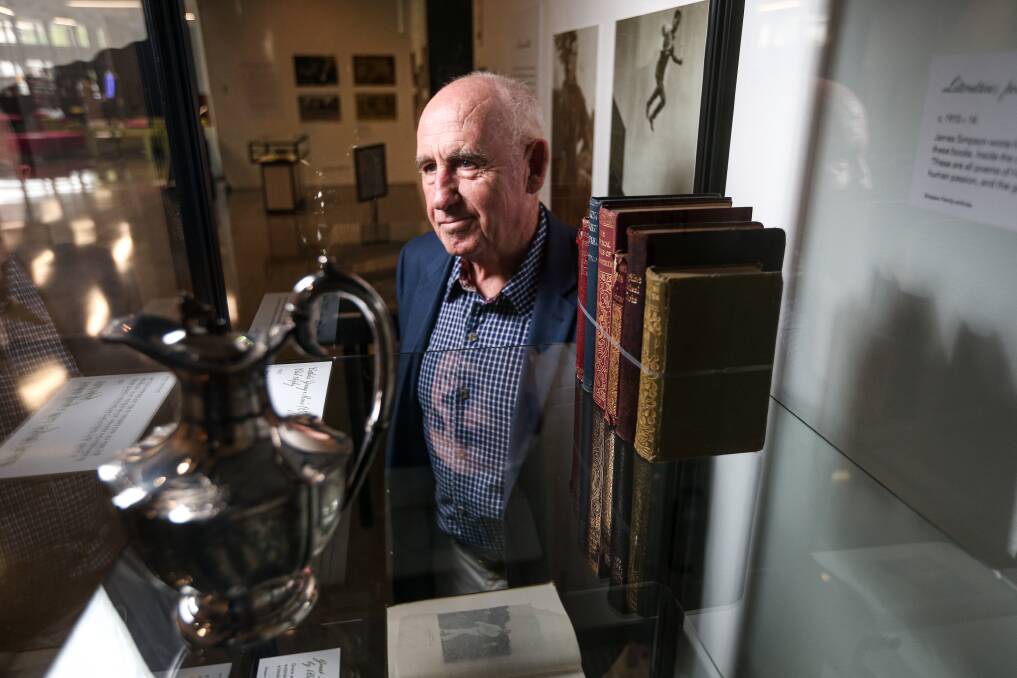
It was a tin full of old spoons that planted the seed for the story.
Subscribe now for unlimited access.
or signup to continue reading
It had been many years since Patrick Mangan had seen his niece, Kristi Cossor (nee Simpson), and the coffee catch-up they organised was long overdue.
As a "conversation point", Kristi brought along a collection of enamel spoons that her great grandfather, James Simpson, had lovingly sent his wife Grace during his overseas travels during WWI.
Kristi had heard much about James Simpson's heroic past from his son - her 'Pop', Halliday (Did) Simpson - an Albury solicitor and tireless O&M football administrator.
Mangan had just finished his first book and was looking for a literary grant to start another; fascinated by James Simpson's life story, he jumped at the opportunity to draft the beginnings of a book.
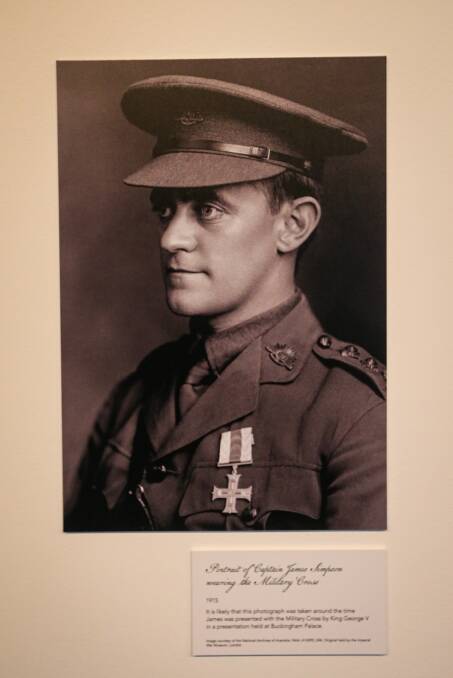
And while the literary grant was never forthcoming, the author says it has been an honour to help preserve the history of "one of Albury's genuine war heroes".
On Thursday night, Mangan officially launched his book, Brave Lover James Simpson, at the Albury LibraryMuseum in conjunction with an exhibition showcasing his life and service through photographs and precious family heirlooms, including the collection of spoons.
Mangan's research began with four dusty boxes packed away in a study containing letters, trophies, a bible, postcards and papers all providing a wonderful insight into the family's history.
The author went on to examine WWI archives and public records, meticulously documenting dates to help him piece together the story.
The book's title intends to convey the love, learning and leadership that characterised the life of James Simpson, Mangan says.
James was a natural leader and teacher, with his daring exploits on the sporting and battle fields well-documented.
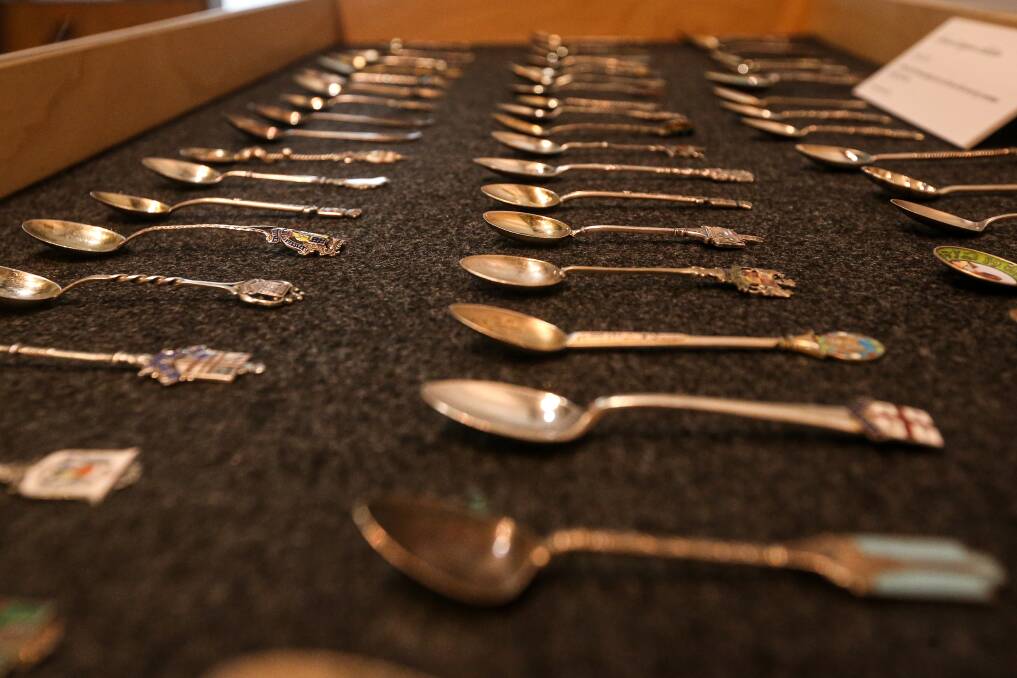
In fact it was during his time playing football for Albury (No. 9) and while he was a teacher at the then Albury Grammar School (now Scots) that he was to display the courage he would later show in battle, according to Mangan.
In a match against Rutherglen in June, 1912, James "sustained a fracture of the collarbone during the third quarter of play," according to a write-up in the personal and social column of the Albury Banner and Wodonga Express.
"He, however, pluckily kept in the field until the end of play, when he consulted a doctor."
He carried that pluck into battle during WWI where he would be awarded the Military Cross for bravery at Gallipoli, the book reveals.
"He won the Military Cross at Gaba Tepe for directing his battalion through unreconnoitred scrub singing with Turkish bullets and alive with snipers," wrote The Bulletin, February 8, 1917.
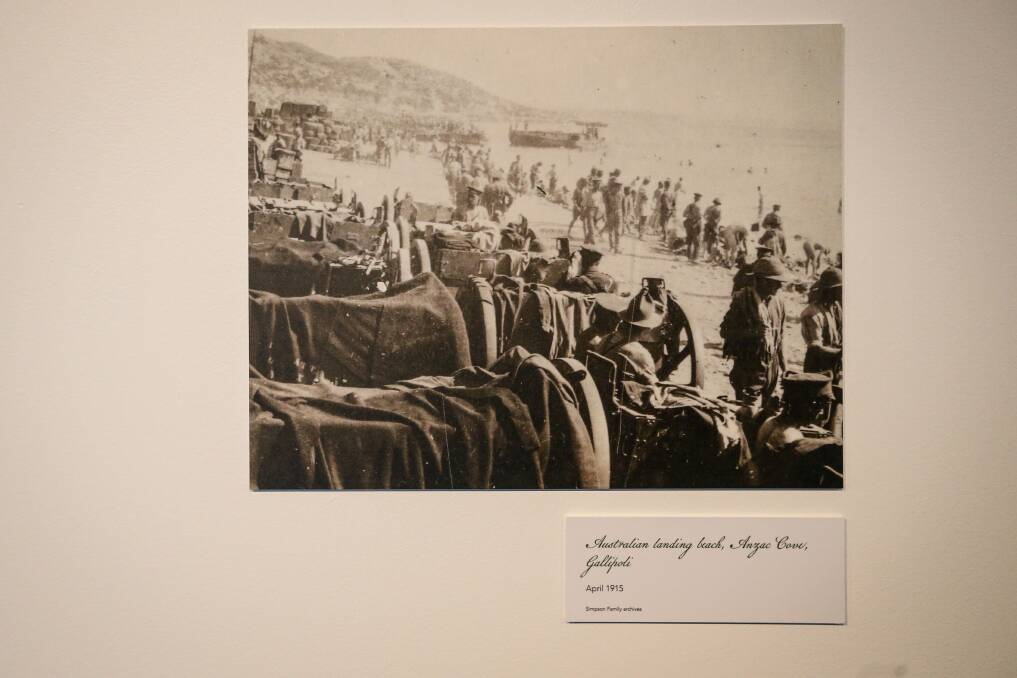
Fewer people would know of James' devotion to his wife Grace (his beloved "Gra") with whom he exchanged long letters from the time of their courtship and throughout the war, including a "regular dispatch" of teaspoons from wherever he was at the time.
It is understood the pair met at the Yarra Street Methodist Tennis and Croquet Club in Geelong about 1901 but did not marry until 1909.
James moved to Albury in 1904 to take up a teaching position at the grammar school, rising to the ranks of assistant master, sports master and cadet corps leader.
Meanwhile Grace (Handley) continued to hone her considerable piano playing and teaching skills, even embarking on a trip to London where she gained the Pianoforte Playing Certficate from the Trinity College of Music, Mangan writes.
It was shortly after she returned from her overseas sojourn - "during which she especially missed James, as her regular letters to him reveal" - that they married; on June 13, 1913 Halliday James was born.
Mangan says the couple shared a blissful family and professional life.
"Little did either of them realise James was about to embark on a serious military adventure where he had to shift from romancing his wife 'hand in hand' ... to vicious 'hand to hand' battles," he wrote.
When war was declared in August, 2014, James was quick to enlist ... the 31-year-old "left cricket and football to lesser men, said goodbye to his wife and son, and went out as captain in the 13th Battalion". (The Bulletin)
HIs courage under fire was to come at a cost in the "ill conceived and poorly planned Gallipoli attack", writes Mangan.
Wounded by a bomb on May 29, 1915, he soldiered on in horrific conditions but collapsed on June 6 and was sent to hospital at Malta with gastritis.
When his condition did not improve he was sent to England to recover; Mangan says it is obvious in letters and photos from the time that James was making little progress and missing his wife and son terribly.
A decision was made to send James back to Australia to recover and recuperate; he was suffering with fatigue, anxiety, headaches, heart palpitations, high blood pressure and neuralgia.
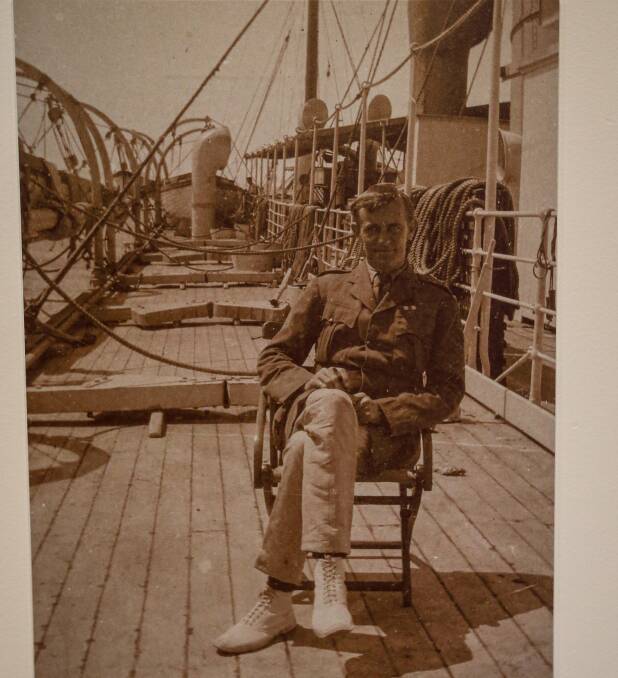
"Albury's most distinguished soldier in the present war" arrived home on November 26, 1915 to a rousing welcome at the railway station.
As his "delicate health" improved, a number of public events were held in his honour and in one two-hour lecture he regaled citizens with tales of his war exploits - "to frequent applause".
But only months later, in a chapter titled 'Duty Calls and Breaks Hearts', Mangan reveals that on February 11, 1916 the medical board approved James Simpson as fit for duty.
"It is believed Grace begged James not to return to the war front, but James felt he was letting his men down ... perhaps Grace had a foreboding about his ultimate fate on the French battlefields," he wrote.
Tragically, "in a period of relatively quiet conflict activity", 34-year-old Lieutenant-Colonel James Simpson was killed in action and buried at Armentieres.
"After life's fitful fever he sleeps well," reads the inscription on his gravestone.
- 'James Simpson - A Life of Service' is on exhibit until July 11.

